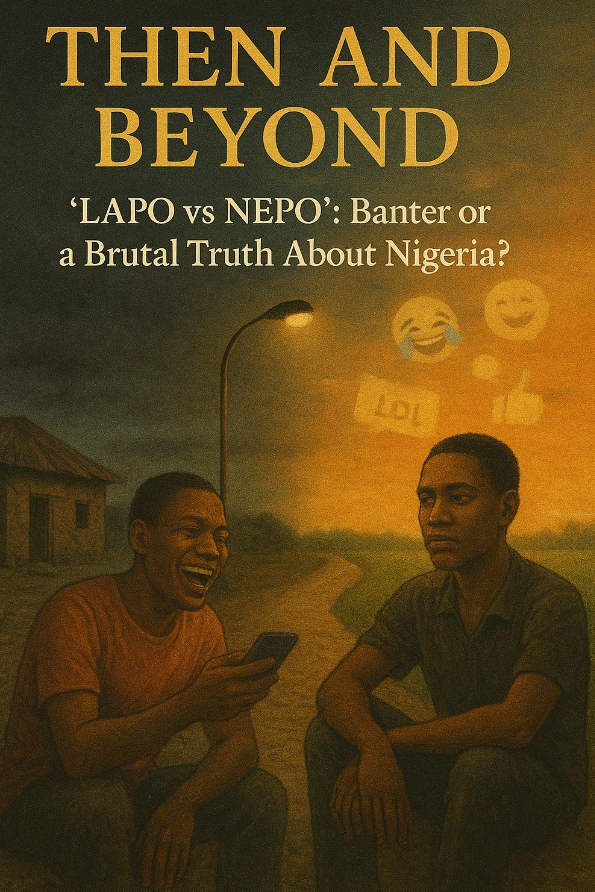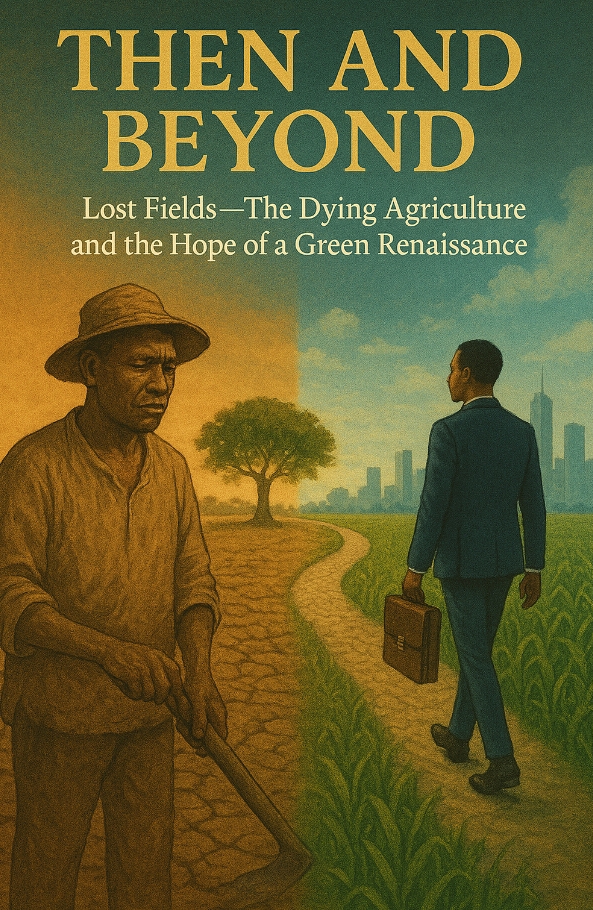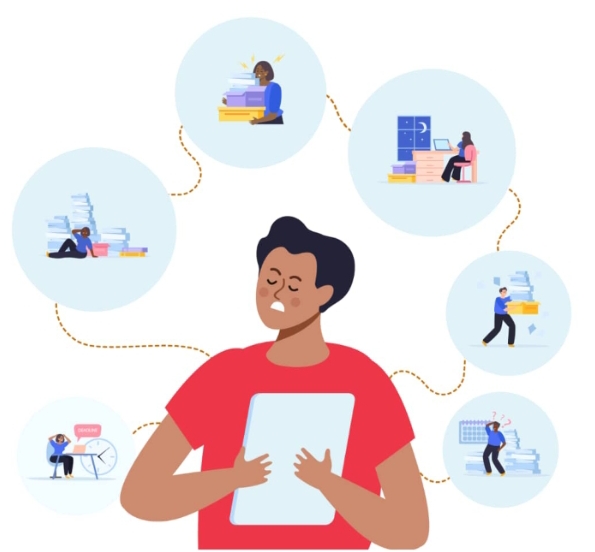Then and Beyond: Codes, Coins, and Consciousness

By: Oluseun Fatope
Technology has never been just wires or machines; it has always been the silent author of human destiny. The printing press loosened knowledge from the grip of gatekeepers. The telephone collapsed distance into intimacy. The internet stitches the fabric of community. And now, in our own time, the story is written in third alphabet: C for Code, the language of machines; C for Coin, the currency without borders; and C for Consciousness, the new battleground where our very sense of self is shaped by screens.
The codes are the rise of artificial intelligence (AI) and the algorithms shaping our daily lives. The coins are cryptocurrencies, those slippery digital tokens governments try to suppress but youths hold on to as if their futures depend on them. And the consciousness is us, the humans negotiating between excitement and fear, progress and caution, opportunity and exploitation.
The question is simple but urgent: how do we navigate this trinity of change?
Codes: The Age of Artificial Intelligence
The first “C” is code, and nothing embodies it more than artificial intelligence. AI has moved from science fiction to everyday fact. It writes essays, generates art, diagnoses diseases, trades stocks, and even writes love poems for people too shy to try. For students, AI has become both a crutch and a companion. Some whisper about “ChatGPT answers” the way older generations whispered about “expo.” For businesses, AI is the employee that never sleeps, never eats, never unionises.
But if AI dazzles, it also frightens. Critics see it as the job thief of the century. A world where robots write articles, design clothes, even argue in court; what, then, becomes of the human worker? The fear is not misplaced. I remember a saying: “AI won’t take your job. Someone using AI will.” The line between assistance and replacement grows thinner by the day.
Beyond jobs, there is the fear of meaning. If a machine can paint a masterpiece, what is left of human creativity? If it can mimic a voice, who owns identity? These are not abstract questions. They already play out in classrooms where lecturers wrestle with AI-written assignments, and in art communities where designers cry that their originality is being swallowed by algorithms.
And yet, for all the fears, to resist AI is to resist the tide. The truth is that AI is neither angel nor devil; it is a mirror, magnifying both human brilliance and human flaws. It can help a student finish his essay faster, but it can also help a fraudster in Ibadan scam victims more efficiently. The code itself is neutral; it is our consciousness that shapes its use.
Coins: The Unruly Promise of Cryptocurrency
If codes are rewriting knowledge and work, coins are rewriting money itself. Cryptocurrency, Bitcoin, Ethereum, and their countless cousins have established a battleground between states and citizens, old systems and new dreams.
Nigeria, interestingly, is one of the world’s top adopters of crypto. Despite the Central Bank’s bans and stern warnings, young Nigerians have embraced it as if it were a lifeline. And in many ways, it is. In a country where inflation eats salaries, where bank charges multiply like termites, and where foreign exchange feels like a luxury, crypto became the poor man’s hedge and the hustler’s hope.
For students, crypto is not just speculation; it is survival. Some pay their way through school trading coins; others earn in stablecoins as freelancers for global clients. On Telegram and WhatsApp groups, discussions about “airdrops” and “wallets” echo like underground economies.
But with promise comes peril. For every story of someone doubling their savings through Bitcoin, there is another of a student losing his entire upkeep to a Ponzi-like “coin.” The volatility is brutal, and the scams are endless. Governments fear crypto because it undermines control; parents fear it because it looks like gambling.
Still, the truth is that cryptocurrency represents a deeper hunger: a search for freedom in finance. Young people do not trust banks that shut down randomly, or currencies that collapse overnight, just like Naira. Coins are not just about wealth; they are about dignity, the right to hold value in a world that constantly devalues you.
Consciousness: The Human Response
The third “C” is the most important: consciousness. Codes and coins mean nothing without the human mind deciding how to use them. And here lies the real tension of our age.
For every enthusiast who sees AI and crypto as salvation, there is a skeptic who sees them as ruin. The debate is fierce. On one end, futurists declare: “This is the dawn of a new civilisation.” On the other, critics warn: “We are building our own destruction.”
Some see AI as liberation from drudgery; others see it as the end of work. Some see crypto as empowerment; others see it as chaos. The disagreement is not just academic; it is cultural. In classrooms, in churches, in markets, people argue about whether these technologies will elevate humanity or erode it.
But here is the thing: history shows that fear always greets the new. The printing press was once called the devil’s machine. The telephone was feared as an intruder. The internet was mocked as a fad. Yet here we are. Every technology brings critics, and many of their warnings are valid. But outright resistance rarely wins. The world moves forward, dragging the fearful along.
The question is not whether AI or crypto will shape the future. They already are. The question is: will our consciousness evolve fast enough to shape them back?
Nigeria at the Crossroads
For Nigeria, the three C’s are not abstract. They are urgent. Already, Nigerian youths are among the world’s most creative users of tech; from fintech startups to Nollywood animation, from crypto adoption to AI-driven hustles. But we are not leading innovation; we are mostly consuming it.
Our universities would rather not teach AI; our government still debates whether crypto is legal or illegal. Meanwhile, students are already coding bots, trading tokens, and living in tomorrow’s economy without formal guidance.
This gap is dangerous. Without conscious policy and education, codes and coins will widen inequality. The NEPO elite will master them; the LAPO majority will be left behind. Instead of bridging the divide, technology may deepen it.
What if Nigerian universities invested in AI labs the way they “once” invested in mining crude oil? What if the government saw crypto not as a threat but as an innovation to regulate and harness? What if consciousness meant not just using technology, but shaping it?
Then and Beyond
Our parents once feared ATMs, thought online banking was witchcraft, and warned us against “internet people.” Every new tool has sparked suspicion. We now face AI and crypto, tools that compress knowledge and money into digital form. The debate rages: angels or demons? Progress or peril? But let us understand that the future will not wait for consensus. Codes will keep writing themselves, coins will keep flowing across borders, and consciousness will keep evolving. The only choice is whether to engage with fear, or to engage with wisdom.
If we resist completely, we risk irrelevance. If we embrace blindly, we risk exploitation. The middle path is to embrace critically: to humanise AI, to regulate crypto, and to expand consciousness so that technology serves people, not the other way around.
Conclusion
The Three C’s are not trends; they are tectonic shifts. Codes (AI) are rewriting knowledge, coins (crypto) are rewriting money, and consciousness (us) is rewriting what it means to be human in a digital world.
Nigeria, like every society, stands before a choice. To reject the new and watch the world move without us. To embrace it uncritically and risk drowning in its tide. Or to step into it consciously; eyes open, hands steady, minds alert.
The future is already here, knocking at our doors in binary codes and blockchain wallets. Whether we open wisely or foolishly will determine whether Then and Beyond is a story of progress or of regret.








